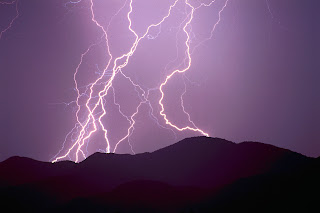 Given that it is Halloween, I thought you all might like to know exactly where the phrase "It was a dark and stormy night...." originated.
Given that it is Halloween, I thought you all might like to know exactly where the phrase "It was a dark and stormy night...." originated.It was the opening line in Edward George Bulwer-Lytton's 1830 book Paul Clifford.
Here is the entire opening line: "It was a dark and stormy night and the rain fell in torrents--except at occasional intervals, when it was checked by a violent gust of wind which swept up the streets (for it is in London that our scene lies), rattling along the housetops, and fiercely agitating the scanty flame of the lamps that struggled against the darkness."
There is actually a contest for bad writing called the Bulwer-Lytton Fiction Contest.
This information was first passed along to me by a student, Ingrid, who worked in our office. She's a great writer and we had a good laugh about this a year or so ago.
Happy Haunting!
(I think it would be fun to write a good ghost story....maybe I'll post one here sometime...I bet you can guess what my opening line will be!)


